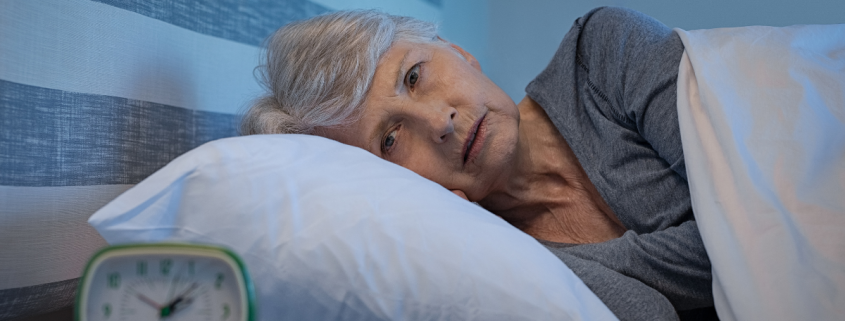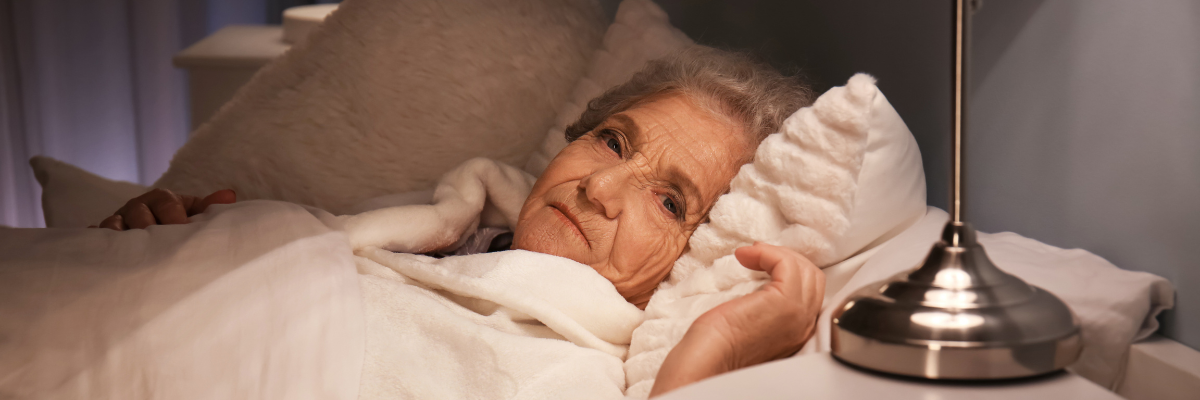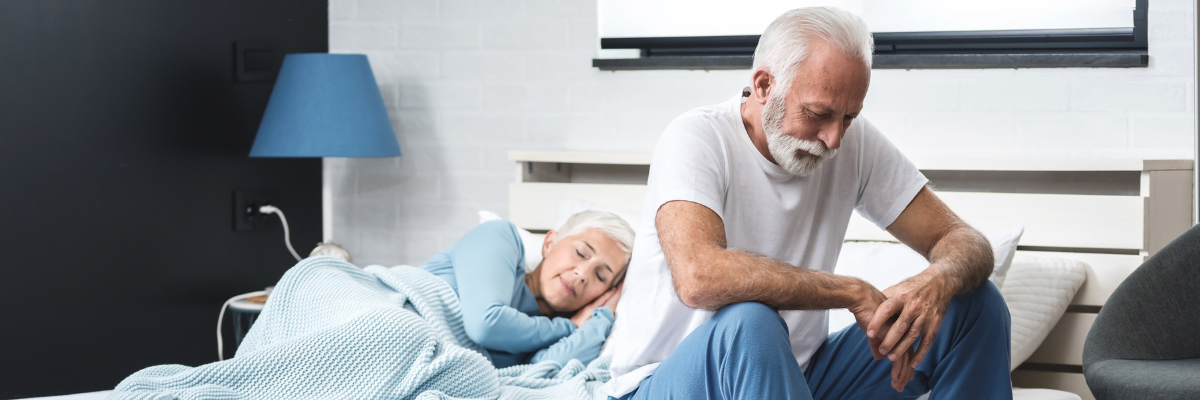Senior Insomnia – Ways To Deal With Broken Sleep Every Night in the Elderly
Annual insomnia affects between 20% and 60% of people in the general population, more often women. Its prevalence increases with age. It is, therefore, a common and serious one that particularly affects older people commonly and severely. What is insomnia in the elderly? How to cope with broken sleep every night? What causes insomnia in female seniors? And what to do with the elderly not sleeping at night problem?
What is insomnia?
Insomnia is a disorder of health in which there is insufficient sleep duration or unsatisfactory sleep quality. It can consist of difficulty falling asleep, waking up early, waking up during sleep or poor quality of sleep, with daytime consequences of feeling unrested, feeling worse, irritability, impaired concentration and learning ability. Insomnia can be understood either as a symptom or as a separate disease entity. Depending on the stage, it can cause broken sleep every night, or strike in waves over several days and subside over time.
What are the causes of insomnia in seniors?
The need for sleep after the age of 60 can be the same as before, provided that the level of life activity, especially physical activity, is not reduced. Unfortunately, this is most often significantly reduced and therefore the body no longer needs 7-8 hours of sleep to recover. A change in the rhythm of the day may also be a cause of insomnia among seniors. The body, accustomed to certain times of waking up and going to bed, can react to such a change with sleep disturbances.
Another cause of insomnia in old age is chronic illnesses and medication. Joint and spinal pains do not give you restful sleep. A burning sensation behind the sternum associated with heartburn and urinary urgency awakens. Painful calf cramps and shortness of breath associated with respiratory and heart diseases may also be the reason why an elderly is not sleeping at night. A night’s rest is also hampered by restless legs syndrome, i.e. involuntary movements and other ailments. However, it is not only various medical conditions that cause the quality of sleep to be unsatisfactory.
Insomnia is often the first symptom of psychiatric illnesses, such as depression, and anxiety, as well as addictions, such as alcohol. It is a symptom of inflammatory disorders, especially rheumatoid, somatic, autoimmune and endocrine diseases. Approximately 10% of all cases of insomnia are primary insomnia. It is understood and diagnosed as a separate disease entity whose causes are unknown. It is generally associated with poor sleep hygiene perpetuated over the years.
And what causes insomnia in female seniors? In addition to the above-mentioned causes of broken sleep every night as far as female seniors are concerned, there may be a hormonal change due to menopause and its consequences.
How to treat insomnia in an older person?
Here are some ways to combat insomnia in seniors and eliminate the problem of broken sleep every night.
Take care of the sleep schedule
Regulating the diurnal cycle is key in the fight against insomnia. For starters, you need to recognise how many hours of rest is good for you. You should sleep as long as you feel rested. If your sleeper likes to take naps, try not to let them last longer than 45 minutes. The last nap, on the other hand, should take place at 3 p.m. at the latest.
Take care of sleeping arrangements
It is best if the senior avoids noise an hour before bedtime and takes this time to quiet down and relax. Remember that a room that is too warm or cold makes it difficult to sleep, the optimal bedroom temperature should be 20 degrees, and bedrooms should be ventilated before bedtime. It’s also worth investing in good quality daylight-proof curtains or sleep masks, as total darkness helps to extract the most benefit from sleep.
Opt for comfort
Older people are not in the habit of replacing furnishings that are not broken. They often sleep on mattresses and pillows well past their glory years. Problems with insomnia are often linked to an uncomfortable place to sleep. Changing the mattress and pillow can provide a solution to sleep difficulties, in addition to helping with back pain or rheumatoid pain.
Maintain a proper diet
Insomnia in an older person is also influenced by diet. It is extremely important for seniors to eat an easily digestible dinner in the evening, consumed about 2-3 hours before bedtime. Infusions of lemon balm, lavender or chamomile, which have a calming effect, can also be introduced into the diet before bedtime.
Consider taking supplements with melatonin
If the above does not help, it is worth consulting your doctor. You may also find safe melatonin supplements in pharmacies which coordinate the overarching biological clock that regulates diurnal rhythms, including sleep and wakefulness.
Insomnia in the elderly – do not underestimate the problem
Healthy and deep sleep is an essential part of well-being. Not only does it allow you to rest, but it is also essential for the proper cognitive functioning of the brain. The problem of broken sleep every night can drastically reduce a senior’s quality of life and mental and physical health, so at the first sign of the elderly not sleeping at night, it is worth considering implementing the above sleep hygiene principles.














